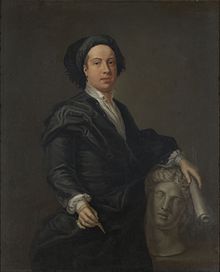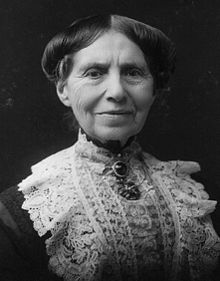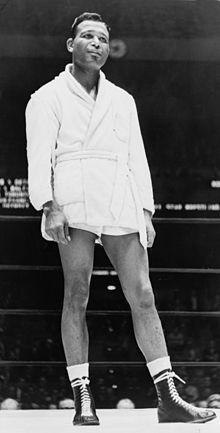April 12 is the 102nd day of the year (103rd in leap years) in the Gregorian calendar. There are 263 days remaining until the end of the year.
Holidays
- Christian Feast Day:
- Commemoration of first human in space by Yuri Gagarin:
- Cosmonautics Day (Russia)
- Yuri’s Night (International)
- Halifax Day (North Carolina)
- The first day of Cerealia (Roman Empire)
- Global Day of Action on Military Spending
History
In 238, Gordian II loses the Battle of Carthage against the Numidian forces loyal to Maximinus Thrax and is killed. Gordian I, his father, commits suicide.
In 240, Shapur I is crowned as king of the Sasanian Empire.
In 467, Anthemius is elevated to Emperor of the Western Roman Empire.
In 627, King Edwin of Northumbria is converted to Christianity by Paulinus, bishop of York.
In 1204, 4th Crusade occupies & plunders Constantinople.

In 1606, James I proclaims national flag combining the cross of St. George & the saltire of St. Andrew for Britain and England adopts as its flag the original version of the Union Jack.
In 1654, England, Ireland & Scotland decide to form a union.
In 1709, The English magazine The Tatler, founded by Sir Richard Steele, was first published. Along with Joseph Addison, he went on to produce The Spectator.
In 1748, William Kent, English architect, designed Holkham Hall and Chiswick House (b. 1685) dies. He born in Bridlington, Yorkshire, and baptised (on 1 January 1686) as William Cant, was an eminent English architect, landscape architect and furniture designer of the early 18th century. Kent introduced the Palladian style of architecture into England with the villa at Chiswick House, and for originating the ‘natural’ style of gardening known as the English landscape garden at Chiswick, Stowe House in Buckinghamshire, and Rousham House in Oxfordshire. As a landscape gardener he revolutionised the layout of estates, but had limited knowledge of orticulture. He complemented his houses and gardens with stately furniture for major buildings including Hampton Court Palace, Chiswick House, Devonshire House and Rousham.
In 1776, American Revolution: With the Halifax Resolves, the North Carolina Provincial Congress authorizes its Congressional delegation to vote for independence from Britain.
In 1799, Phineas Pratt patented the comb cutting machine. Remember the brand name, Pratt & Whitney … the famous engines from airplanes to lawn mowers? Now you know where the name came from … different people, but related through generations, we’re told.
In 1811, First U.S. colonists on Pacific coast arrive at Cape Disappointment, WA.
In 1820, Alexander Ypsilantis is declared leader of Filiki Eteria, a secret organization to overthrow Ottoman rule over Greece.

Charles Foster (April 12, 1828 – January 9, 1904) born April 12th was a Republican politician from the U.S. state of Ohio. He was a member of the U.S. House of Representatives from 1871 to 1879, and later served as the 35th governor of Ohio from 1880 to 1884. In 1891, he was appointed Secretary of the Treasury by President Benjamin Harrison, serving until 1893 before retiring.
This picture is a line engraving of Foster, produced around 1902 by the Department of the Treasury‘s Bureau of Engraving and Printing (BEP), as part of a BEP presentation album of the first 42 secretaries of the treasury, which was reportedly given to Secretary Lyman J. Gage.
Engraving credit: Bureau of Engraving and Printing; restored by Andrew Shiva
In 1831, Soldiers marching on the Broughton Suspension Bridge in Manchester, England cause it to collapse.
In 1833, Charles Gaylor patented the fireproof safe in New York City. Today, these safes are widely used to protect everything from priceless art to sensitive computer software. Some of these safes can burn at 1,700 degrees Fahrenheit for an hour and the contents will still be as cool as a cucumber. Other units can sustain heat up to 400-500 degrees for about the same time without damaging the valuable contents within.
In 1844, Texas became a U.S. territory.
In 1847, Yung Wing, one of several Chinese students to arrive in America this day, went on to become the first student from China to graduate from Yale University [1854]. He was involved in business transactions between China and the United States and brought students from China to study in the United States on the Chinese Educational Mission. He became a naturalized American citizen, but his status was later revoked under the Naturalization Act of 1870.
In 1861, American Civil War: Battle of Fort Sumter. The war begins with Confederate forces firing on Fort Sumter, in the harbor of Charleston, South Carolina.

In 1862, American Civil War: The Andrews Raid (the Great Locomotive Chase) occurs, starting from Big Shanty, Georgia (now Kennesaw). Union volunteers led by James J. Andrews stole a Confederate train near Marietta, Georgia. This episode inspired the Buster Keaton comedy “The General”. Confederates eventually captured the raiders and quickly executed some as spies, including Andrews; some others were able to flee. Some of the raiders were the first to be awarded the Medal of Honor by the US Congress for their actions. As a civilian, Andrews was not eligible.
In 1864, American Civil War: The Battle of Fort Pillow: Confederate forces kill most of the African American soldiers that surrendered at Fort Pillow, Tennessee.
In 1865, American Civil War: Mobile, Alabama, falls to the Union Army.
In 1877, The United Kingdom annexes the Transvaal.
In 1878, William M. Tweed, American politician (b. 1823) died in the Ludlow Street Jail on April 12, 1878 from severe pneumonia, and was buried in the Brooklyn Green-Wood Cemetery. He was often erroneously referred to as William Marcy Tweed and widely known as “Boss” Tweed – was an American politician most notable for being the “boss” of Tammany Hall, the Democratic Party political machine that played a major role in the politics of 19th century New York City and State. At the height of his influence, Tweed was the third-largest landowner in New York City, a director of the Erie Railroad, the Tenth National Bank, and the New-York Printing Company, as well as proprietor of the Metropolitan Hotel. Tweed was elected to the United States House of Representatives in 1852 and the New York County Board of Supervisors in 1858, the year he became the head of the Tammany Hall political machine. He was also elected to the New York State Senate in 1867, but Tweed’s greatest influence came from being an appointed member of a number of boards and commissions, his control over political patronage in New York City through Tammany, and his ability to ensure the loyalty of voters through jobs he could create and dispense on city-related projects.
In 1887, The remains of ex-President Abraham Lincoln are moved from a secret burial lot and re-buried with his wife in Springfield, Illinois.
In 1896, Voters in Lockport, New York, became the first in the United States to use voting machines.
In 1898, Army transfers San Francisco’s Yerba Buena Island to Navy.
In 1898, asking people to “Remember the Maine,” the U.S. government on this date asked for 125,000 volunteers to fight against Spain in Cuba. The Maine, you might recall, was an American naval ship that had blown up while anchored in Havana Bay. The United States blamed Spain and used that as an excuse to declare war.
In 1905, French Dufaux brothers test their helicopter.
In 1908, Fire makes 17,000 homeless in Chelsea Massachusetts.
In 1910, SMS Zrínyi, one of the last pre-dreadnoughts built by the Austro-Hungarian Navy, is launched.
In 1912, Clara Barton, American nurse and humanitarian, founded the American Red Cross (b. 1821) dies at the age of 90 she died in Glen Echo. The cause of death was tuberculosis, which she had contracted two years earlier and with which she had been bedridden for a month. She was a pioneer nurse who founded the American Red Cross. In addition to being a nurse, she worked as a teacher, patent clerk, and humanitarian. At a time when relatively few women worked outside the home, Barton built a career helping others. She was never married, as she knew the restrictions of a married women at the time, but had a relationship with John J. Elwell. During the end of the American Civil War, Barton worked at a hospital she made helping the people at the Anderson prison camp where 13,000 people died.
In 1917, World War I: Canadian forces successfully complete the taking of Vimy Ridge from the Germans.
In 1927, April 12 Incident: Chiang Kai-shek orders the Communist Party of China members executed in Shanghai, ending the First United Front.
In 1928, The Bremen, a German Junkers W33 type aircraft, takes off for the first successful transatlantic aeroplane flight from east to west.
In 1933, Moffatt Field (Naval Air Station) is commissioned.
In 1934, the F. Scott Fitzgerald novel “Tender Is The Night” was first published by Scribner’s in New York.
In 1934, The strongest surface wind gust in the world at 231 mph, is measured on the summit of Mount Washington, New Hampshire.
In 1935, First flight of the Bristol Blenheim.
In 1937, Sir Frank Whittle ground-tests the first jet engine designed to power an aircraft, at Rugby, England.
In 1938, First US law requiring medical tests for marriage licenses (NY).
In 1944, King Victor Emmanuel of Italy announced his intention to abdicate in favor of the Prince of Piedmont when the Allies entered Rome.
In 1945, Canadian troops liberated the Nazi concentration camp in Westerbork, Neth.
In 1945, World War II: The U.S. Ninth Army under General William H. Simpson crosses the Elbe River astride Magdeburg, and reached Tangermünde—only 50 miles from Berlin.
In 1945, U.S. President Franklin D. Roosevelt , the 32nd president of the United States, died of a cerebral hemorrhage in Warm Springs, Georgia at age 63; upon president FDR’s death, Vice President Harry S. Truman was sworn in as the nation’s 33rd chief executive.
In 1946, Syria gains independence from France.
In 1955, The polio vaccine of Dr. Jonas Salk was termed “safe, effective and potent” by the University of Michigan Polio Vaccine Evaluation Center.
In 1961, Soviet cosmonaut Yuri Alexeyevich Gargarin was the first person in space as he took a one orbit 108-minute voyage around the earth as he rode in a 10,395 pound Vostok I.
In 1966, first B-52 bombing on North Vietnam.
In 1973, France recognizes North Vietnam. In less than 2 years I will recognize it as well.
In 1981, The space shuttle Columbia, the first reuseable spacecraft, carrying astronauts Robert L. Crippen and John W. Young, blasted off from Cape Canaveral, Florida, on its first test flight.
In 1985, Sen. Jake Garn of Utah became the first senator to fly in space as the shuttle Discovery lifted off from Cape Canaveral, Florida.
In 1988, Singer Sonny Bono was elected to his first political office, as mayor of Palm Springs, CA.
In 1989, Sugar Ray Robinson, American boxer (b. 1921) dies. He was an American professional boxer. Frequently cited as the greatest boxer of all time, Robinson’s performances in the welterweight and middleweight divisions prompted sportswriters to create “pound for pound” rankings, where they compared fighters regardless of weight. He was inducted into the International Boxing Hall of Fame in 1990. Most as an amateur with 69 of those victories coming by way of knockout, 40 in the first round. He turned professional in 1940 at the age of 19 and by 1951 had a professional record of 128–1–2 with 84 knockouts. From 1943 to 1951 Robinson went on a 91 fight unbeaten streak, the third longest in professional boxing history. Robinson held the world welterweight title from 1946 to 1951, and won the world middleweight title in the latter year. He retired in 1952, only to come back two and a half years later and regain the middleweight title in 1955. He then became the first boxer in history to win a divisional world championship five times, a feat he accomplished by defeating Carmen Basilio in 1958 to regain the middleweight championship. Robinson was named “fighter of the year” twice: first for his performances in 1942, then nine years and over 90 fights later, for his efforts in 1951. Renowned for his flamboyant lifestyle outside the ring, Robinson is credited with being the originator of the modern sports “entourage“. After his boxing career ended, Robinson attempted a career as an entertainer, but struggled, and was challenged financially until his death in 1989.
In 1990, under pressure from environmentalists, three top U.S. tuna canneries, H.J. Heinz, Van Camp and Bumblebee, announced “dolphin-safe” tuna-catching practices.
In 1991, Defense Secretary Dick Cheney announced plans to close 31 major U.S. military bases, including Fort Ord in California and Fort Dix in New Jersey.
In 1994, Senate Majority Leader George Mitchell declined to be nominated to the U.S. Supreme Court.
In 1995, in a move that stunned the business world, billionaire Kirk Kerkorian and former Chrysler Chairman Lee Iacocca made an unsolicited $22.8 billion bid to buy the nation’s third largest automaker; Chrysler responded that it wasn’t for sale.
In 1996, President Clinton named U.S. Trade Representative Mickey Kantor to succeed the late Ron Brown as commerce secretary.
In 1999, a jury in Little Rock, Arkansas, acquitted Susan McDougal of obstructing Independent Counsel Kenneth Starr’s Whitewater inquiry and deadlocked on two other charges, causing a mistrial.
In 1999, U.S. District Judge Susan Webber Wright cited President Clinton for contempt of court, concluding that the president had lied about his relationship with Monica Lewinsky in a deposition in the Paula Jones case.
In 2002, A female suicide bomber blows herself up at the entrance to Jerusalem’s Mahane Yehuda open-air market, killing 7 and wounding 104.
In 2007, A suicide bomber penetrates the Green Zone and detonates in a cafeteria within a parliament building, killing Iraqi MP Mohammed Awad and wounding more than twenty other people.
In 2009, Zimbabwe officially abandons the Zimbabwe Dollar as its official currency.
In 2010, A train derails near Merano, Italy, after running into a landslide, causing nine deaths and injuring 28 people.
In 2014, A wildfire ravages the Chilean city of Valparaíso, killing 16, displacing nearly 10,000, and destroying over 2,000 homes.
In 2018, An Ilyushin Il-76 which was owned and operated by the Algerian Air Force crashes near Boufarik, Algeria, killing 257.
In 2021, Twenty year old Daunte Wright is shot and killed in Brooklyn Center, Minnesota by officer Kimberly Potter, sparking protests in the city, when the officer allegedly mistakes her own gun for her taser.
In 2023, During the Pazigyi massacre, an airstrike conducted by the Myanmar Air Force kills at least 100 villagers in Pazigyi, Sagaing Region.





